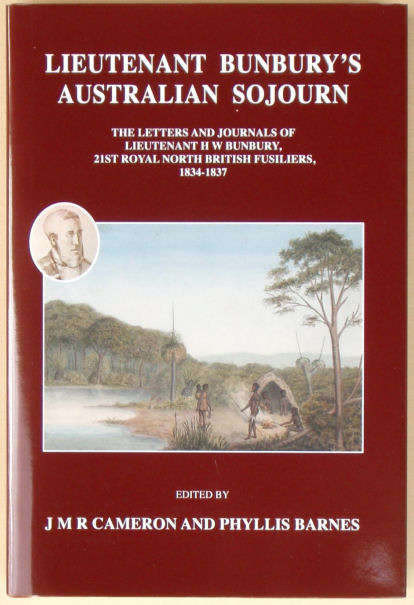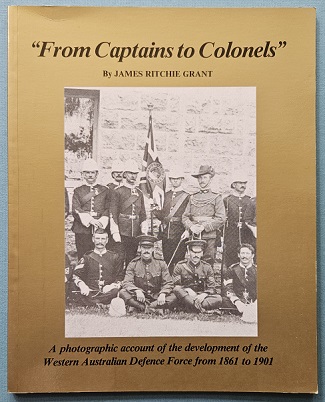Description
Title: Lieutenant Bunbury’s Australian Sojourn – The letters and journals of Lt. H.W. Bunbury, 21st Royal North Fusiliers, 1834-1837
Editors: JMR Cameron and Phyllis Barnes
Condition: Mint
Edition: 1st Edition
Publication Date: 2013
ISBN: 9780859055512
Cover: Hard Cover with Dust Jacket – 286 pages
Comments: Henry William St Pierre Bunbury, after whom the City of Bunbury in Western Australia is named, was a professional soldier, the son and nephew of distinguished professional soldiers. He was just 21 years old when he sailed for the Australian colonies in charge of the military guard on the convict transport Susan. Between his arrival in Sydney in July 1834 and his departure in November 1837, he spent 10 months in New South Wales as aide-de-camp to Governor Bourke, 9 months in Van Diemen’s Land, and 21 months in Western Australia.
Bunbury’s duties in New South Wales placed him at the centre of the colony’s affairs and brought him into contact with people across a rapidly expanding frontier where pastoralists pushed outwards in search of new pastures for their flocks. Acquiring a taste for bush life, Bunbury sought a posting to a remote location when he rejoined his regiment in Van Diemen’s Land and became the commander at Eaglehawk Neck, the guard post for the notorious convict prison at Port Arthur. In Western Australia, he established a number of military stations designed to encourage expansion outwards from the small settlements along Swan River where most settlers in 1835 still huddled. He is best remembered, however, in his role as frontier policeman during the disturbances between the local Nyoongar people and incoming settlers in the Avon Valley in 1836 and 1837.
In each place, Bunbury wrote long letters home to his family recording his impressions of his surroundings and his hopes for the future. Nearly two centuries on, his observations are as lively and as insightful as when they were written, suffused with youthful exuberance and wonder at the novelty of his surroundings. Colonial speech intrigued him and he observed: ‘the number of colonial words is endless & and in slang the colony will soon be perfect; in the course of a few years Sydney may boast a language of its own’. Governor Stirling intrigued him also, but there was a sharper edge to his interest: ‘He has a most unfortunate memory and forgets his promises which he does not find convenient to keep … it is notorious in the colony that except in writing, no promise of his is worth anything’.
Many current concerns about British expansion in the period immediately after the Napoleonic Wars are explored by Bunbury, not least through his questioning of the approach adopted by Britain to the encouragement of overseas settlement, or his condemnation of the British government’s approach to the treatment of native peoples in its colonised territories, or his accounts of settlers’ early attempts at agriculture, or his own interactions with Aboriginal people. Always the professional soldier, Bunbury is equally an informed and confirmed citizen of empire which makes his ‘Australian Sojourn’ a particularly valuable contribution to understanding Australia’s past.




